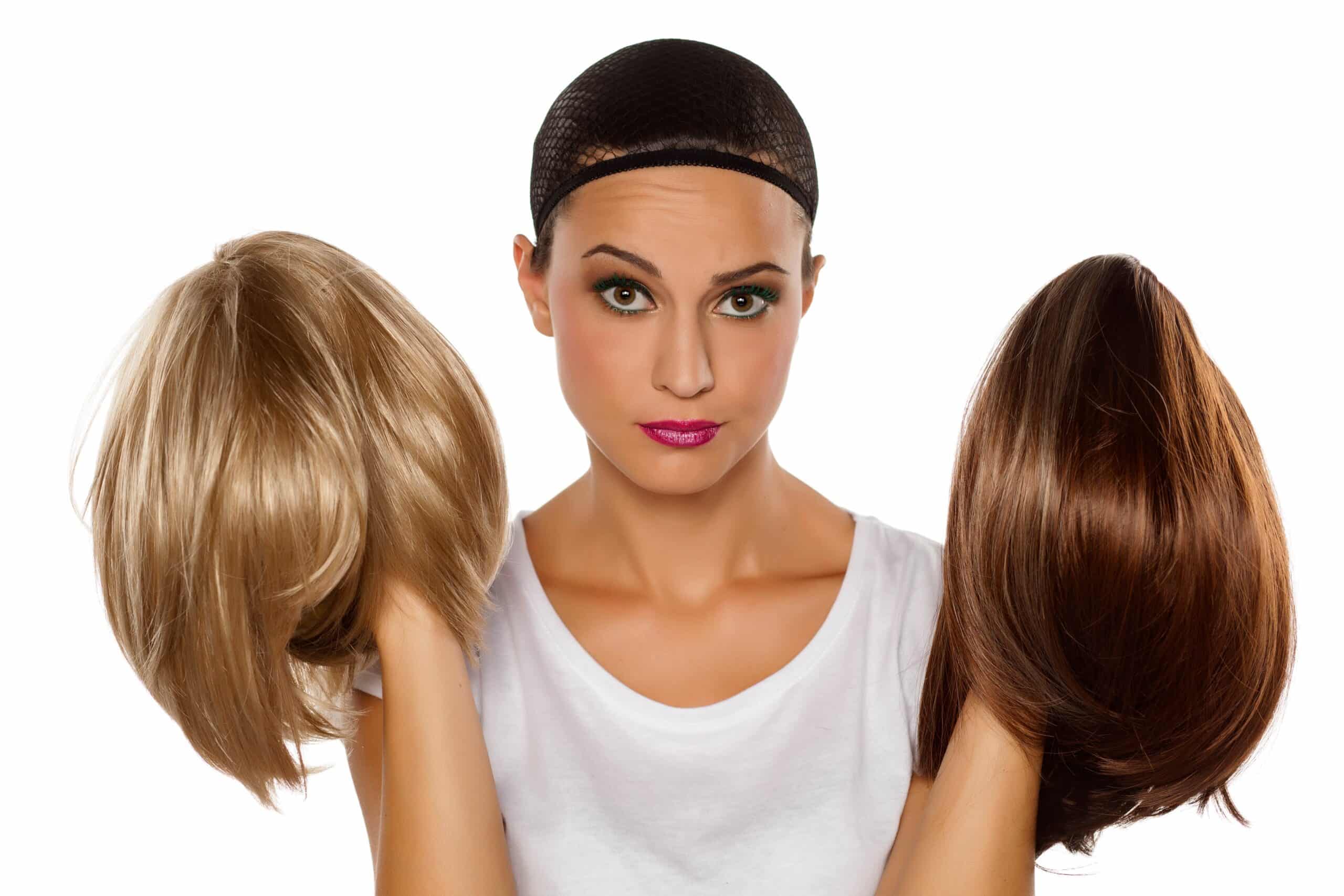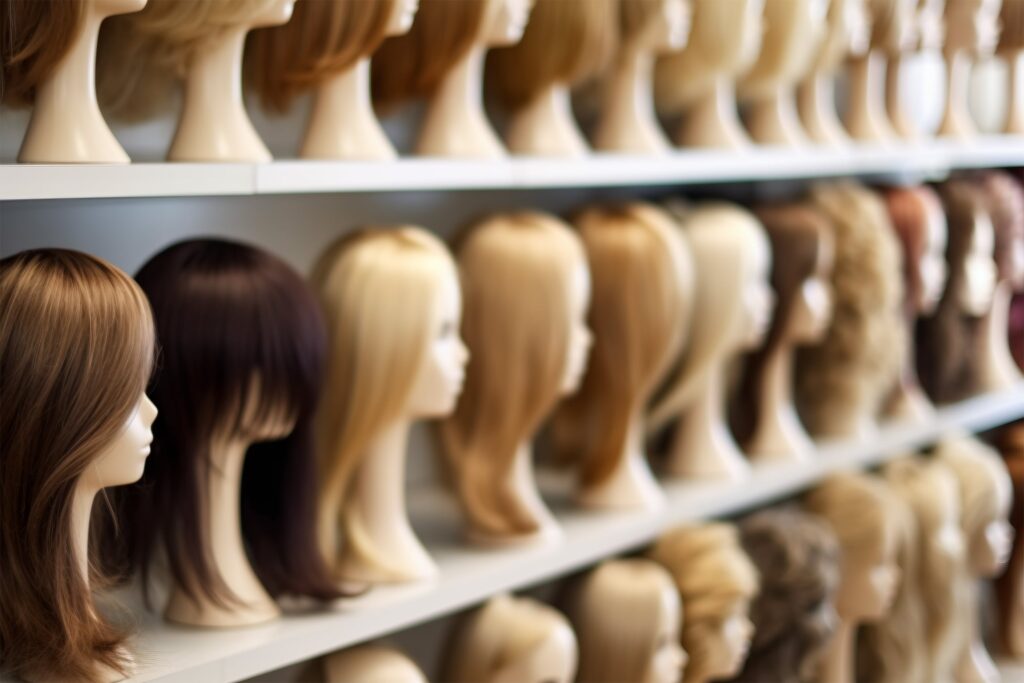Do Wigs Cause Hair Loss? Debunking Myths & Protecting Your Natural Hair
Wigs have become an incredibly popular accessory, offering versatility, convenience, and a fantastic way to experiment with different looks without altering your natural hair. They're also widely used as a protective style, allowing your natural strands a break from heat, styling, and environmental stressors. However, despite their many benefits, a common concern often arises: do wigs cause hair loss?
It's a question many people ponder, and it's often fueled by misconceptions or anecdotal experiences. People often believe that wigs are a potential cause of hair loss or contribute to decreased hair growth and scalp conditions. Wigs are often associated with serious illnesses or after-effects of medical treatments, which can further contribute to the misconception that they inherently damage hair. But is this truly the case? In this blog, we'll talk about whether wigs contribute to hair loss, common misconceptions, and tips for wearing wigs safely to maintain healthy hair. Understanding how to properly wear and care for your wigs, as well as your natural hair underneath, is key to enjoying this versatile hair accessory without fear.
The Short Answer: Not Directly
Let's get straight to the point: The short answer is that wearing wigs itself does not directly cause hair loss. In fact, for many, wigs serve as an excellent protective hairstyle, shielding natural hair from daily manipulation, harsh weather, and styling tools that can lead to breakage and damage. Most women wear wigs as a protective hairstyle to encourage natural hair growth and retain length, allowing their hair to thrive undisturbed underneath.
- Season Hair Color
- What Happened In 2014 Pop Culture
- Curtain Bangs
- Sliced Bob Haircuts
- Unicorn Makeup For Halloween
The answer is, No! wearing clean wigs will not cause hair loss as long as they are not too tight. When worn correctly and with proper care, wigs can actually be beneficial for your hair health. They create a barrier, protecting your natural hair from environmental aggressors like sun, wind, and pollution, and reduce the need for excessive heat styling or chemical treatments.
Common Misconceptions About Wigs and Hair Loss
As mentioned, the idea that wigs cause hair loss is a widespread belief. This misconception often stems from observing individuals who wear wigs due to medical conditions that cause hair loss, such as alopecia, chemotherapy side effects, or other illnesses. In these cases, the wig is a solution to existing hair loss, not the cause. This association can lead to the false conclusion that wigs themselves are detrimental to hair health.
Another misconception is that wigs "suffocate" the scalp or prevent natural hair growth. A well-ventilated wig and a clean scalp allow for proper air circulation, and as long as the wig isn't excessively tight, it won't hinder your hair's natural growth cycle. The key lies in understanding that while wigs do not inherently cause hair loss, they can contribute to hair loss if not worn correctly. Many people have experienced hair damage as a result of not properly caring for their natural hair or their wigs.
- Chrom Nails
- Shampoo For Dry Hair And Frizzy Hair
- How To Tone Down Brassy Highlights
- Do Alfie And Emily Get Back Together
- Jane Seymour Makeup
How Wigs *Can* Contribute to Hair Loss (Indirectly)
While wigs themselves aren't the culprits, certain practices related to how you wear and care for your wigs can contribute to hair loss. It's crucial to be aware of these factors to prevent potential damage:
1. Traction Alopecia from Tight Wigs
This is arguably the most common cause of hair loss associated with wigs. Common causes of hair loss from wigs include traction alopecia due to tight fitting. When a wig is too tight, or if it's secured with clips, combs, or bands that pull on your natural hair, it creates constant tension on hair follicles. This constant tension, especially around the hairline and temples, leads to gradual thinning and eventually, permanent hair loss in those areas. It's a condition known as traction alopecia, and it's entirely preventable.
2. Lack of Scalp and Hair Hygiene
Neglecting your natural hair and scalp underneath the wig is a recipe for disaster. If you don't regularly cleanse and moisturize your scalp and hair, product buildup, sweat, and dirt can accumulate. This creates an unhealthy environment, leading to clogged follicles, scalp irritation, itching, and potential infections, all of which can contribute to hair thinning and loss.
3. Improper Wig Application and Removal
Rough handling during wig application or removal can also cause damage. Pulling on your natural hair, using harsh adhesives without proper removal techniques, or ripping off a wig can lead to breakage and scalp damage from improper wig application. Be gentle and patient when putting on and taking off your wig.
4. Friction and Rubbing
If the wig cap or the wig itself constantly rubs against certain areas of your scalp, it can cause friction-induced breakage or irritation. This is often an issue with ill-fitting wigs or those made from rough materials.
Protecting Your Hair While Wearing Wigs
The good news is that preventing wig-related hair loss is entirely within your control. Even though you may wear wigs as a protective style, it is important to maintain a healthy hair routine while wearing wigs. Here are seven ways you can improve your hair health and ensure your natural hair thrives underneath your beautiful wigs:
- Choose the Right Size: This is paramount. Your wig should fit snugly but comfortably, without pulling or causing pressure points. Measure your head accurately before purchasing. If it feels too tight, it likely is.
- Avoid Excessive Tension: Don't use wig clips or combs that dig into your scalp or pull your hairline. If you need extra security, opt for a velvet wig grip band or adjust the wig's elastic band for a snug, but not tight, fit.
- Prioritize Scalp Hygiene: Regularly wash your natural hair and scalp, even when wearing a wig. Use a gentle, sulfate-free shampoo and conditioner. A clean scalp is a healthy scalp.
- Moisturize Your Natural Hair: Before putting on your wig, ensure your natural hair is clean, dry, and well-moisturized. Use a leave-in conditioner or a light oil to keep your strands hydrated and prevent dryness and breakage.
- Wear a Wig Cap: A silk or satin wig cap acts as a barrier between your natural hair and the wig. It reduces friction, helps keep your hair flat, and prevents your natural oils from transferring to the wig, keeping both your hair and wig cleaner. Avoid nylon or cotton caps as they can absorb moisture from your hair.
- Give Your Hair Breaks: Don't wear your wig 24/7. Allow your scalp and natural hair to breathe, especially overnight. Take breaks from your wig, even if it's just for a few hours in the evening or a full day on weekends.
- Properly Care for Your Wig: A clean wig is essential for a healthy scalp. Wash your wig regularly according to its type (human hair or synthetic) to prevent the buildup of dirt, oils, and bacteria that can transfer to your scalp.
- Gentle Application and Removal: Always be gentle when putting on and taking off your wig. Avoid tugging or pulling. If using adhesives, ensure you have the proper solvent for removal to prevent ripping out your hairline.
Final Summary
In conclusion, the notion that wigs inherently cause hair loss is a myth. Wigs, when worn correctly and with proper care, can actually be a fantastic protective style that promotes healthy hair growth. The key to preventing hair loss lies not in avoiding wigs altogether, but in adopting mindful practices. This includes choosing a well-fitting wig that doesn't cause tension, maintaining excellent scalp and hair hygiene underneath, and handling both your natural hair and your wig with care. By following these simple guidelines, you can confidently enjoy the versatility and beauty of wigs without compromising the health of your precious natural hair.
Article Recommendations
- Model With No Belly Button
- Easy Maintenance Hair Colour
- Starbucks Labor Tea
- Best Microblading
- Caramel Balayge


Detail Author:
- Name : Callie Bode
- Username : cristina.davis
- Email : annetta.emard@hotmail.com
- Birthdate : 1976-09-01
- Address : 51928 Amos Prairie Port Verlie, IL 58130-2148
- Phone : 281-950-0392
- Company : Bosco, Hill and Moen
- Job : Gaming Supervisor
- Bio : Maxime magnam nobis suscipit. Ea quam rerum autem aspernatur harum tempora. Fugit cumque et reprehenderit ut dolores. Dolor laborum facere et a labore aut ut. Quia qui earum qui in enim eius et.
Socials
tiktok:
- url : https://tiktok.com/@katrine8275
- username : katrine8275
- bio : Ipsum et quaerat nemo amet perferendis dignissimos repellendus.
- followers : 4474
- following : 2155
twitter:
- url : https://twitter.com/katrine3914
- username : katrine3914
- bio : Ab nihil velit rerum omnis dolorum tenetur. Beatae facilis eaque tempore. Doloribus quia voluptatibus amet asperiores. Sunt in repellat esse est minima.
- followers : 4305
- following : 673
instagram:
- url : https://instagram.com/katrine.wisozk
- username : katrine.wisozk
- bio : Ut culpa omnis vel sit suscipit porro. Et ratione officiis et delectus officia assumenda sunt ad.
- followers : 6882
- following : 1224
facebook:
- url : https://facebook.com/katrine_dev
- username : katrine_dev
- bio : Sapiente magni ut nam atque commodi quaerat.
- followers : 5342
- following : 2691